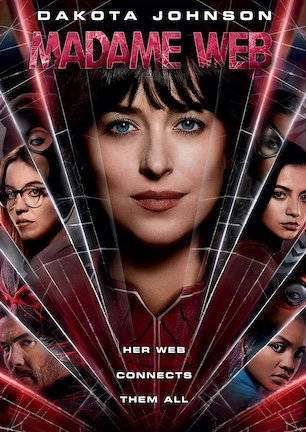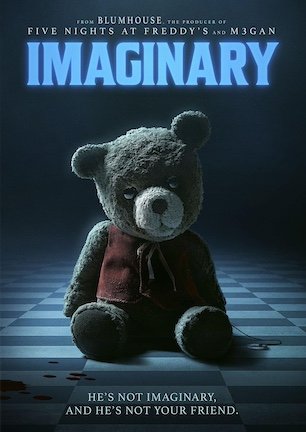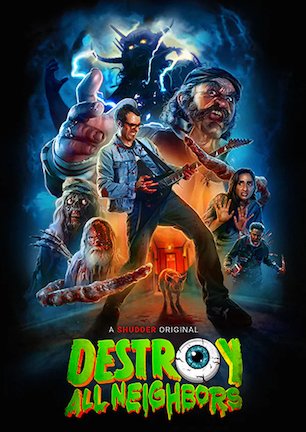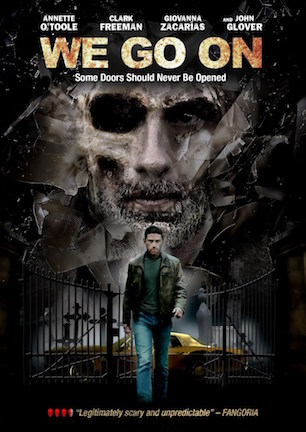Studio: Entertainment One
Director: Jim Mickle
Writer: Nick Damici, Jim Mickle
Producer: Rodrigo Bellott, Andrew D. Corkin, Linda Moran, Nicholas Shumaker, Jack Turner
Stars: Bill Sage, Ambyr Childers, Julia Garner, Wyatt Russell, Nick Damici, Kassie DePaiva, Jack Gore, Odeya Rush, I.N. Sierros, Kelly McGillis, Michael Parks
Review Score:
Summary:
The dark secret of a devoutly religious family is exposed when human remains wash up during a rainstorm.
Review:
Scanning quick blurbs of news articles or catching brief glances of promotional materials gives the first impression that “We Are What We Are” is all about a family feasting on human flesh. Long pig is definitely an element, though it is not the only one. Acknowledging the cannibalism angle beforehand does not necessarily spoil the story, but it does simplify the movie with a summary that is not entirely accurate.
Drop some bloody bowls in front of dour expressions overseen by a bearded grimace, use it to spark interest, and the likely result is an audience eager for something close in spirit to “Texas Chainsaw Massacre” meets “Carrie.” That minor misdirection ends up being the first domino to fall in a line. And that line ends with befuddlement for someone whose motor is revved over inaccurate expectations of skin-biting terror.
Sure, distributors need to sell movies in single sentences and cast wide nets for that all-important return on investment. It’s just that “We Are What We Are” has a presence more appropriate for an arthouse theater with a wine bar inside than a grindhouse cinema hosting a midnight movie. Steeling the mind for one instead of the other is a recipe for exiting the film with a thumb pointed down.
Generations of Parkers have inherited a family secret dating back centuries to some questionable religious beliefs. If the box cover did not already reveal what that secret is, then the paragraphs above surely did. Since the town they live near is not privy to the sales artwork or this review, the residents there have to wait for rising floodwaters to loosen the remains of missing persons populating makeshift graves. With their true nature potentially exposed, patriarch Frank, his daughters Iris and Rose, and young son Rory now have hard choices to make regarding how to continue their lives.
The exact nature of those religious beliefs is frustratingly ambiguous. Those last two words fit the movie’s general description well, since open-ended interpretations are front and center on the menu. The film wants elements like the family’s belief system to be obscure so audiences have a tougher time deciding whether the Parkers are truly deranged or just mistakenly delusional. At the same time, it leaves things open to vulnerability in the satisfaction department.
“We Are What We Are” is director Jim Mickle’s English-language remake of writer/director Jorge Michel Grau’s 2010 Spanish-language film “Somos lo que hay.” Mickle’s take on the material treats the cannibalism as almost incidental to larger themes of domineering family ties and sullied spiritual motivations. More than anything, the story is one more tool used to wash the screen in melancholy.
“We Are What We Are” can be criticized/applauded for its focus on arty excess over creating a draw on a conventional level. With only casual attention paid to things like pacing and noteworthy story beats, the film is less concerned about mainstream appeal and is more dialed in to pulling off a pretty presentation.
That imbalance makes it a challenge to recommend the movie as Friday night entertainment. But as an example of it taking a village to make a technically accomplished motion picture, “We Are What We Are” is an award-caliber production.
Wardrobe is noted most when a movie is a lavish period piece brimming with era-specific couture or a fantasy epic limited by the designers’ imaginations and not by the producer’s checkbook. It would be an oversight to not call out the craftsmanship that costume designer Elisabeth Vastola brings to this table. Her work stands out by not standing out.
The Parker family is fitted in an unidentifiable mixture of garments that is simultaneously retro while somehow not a sore thumb in the weird backwoods they occupy. Iris and Rose wear those high necks and ruffled frills that universally symbolize Bible-raised demureness. Put one of their tops over an average pair of denim jeans however, and the girls fit right in with the rest of the nearby country folk.
Subtle details run for long distances in every other department, too. Philip Mossman, Darren Morris, and Jeff Grace are credited for the music. However their duties were divided, they recombine for a score that gives a perfectly timed heartbeat. Adding ten minutes to the runtime that the original film did without, “We Are What We Are” is long and slow to develop. This trio of musicians complements that tempo, yet in a hypnotic way that alleviates boredom by replacing it with growing dread.
Taking nothing away from Jim Mickle’s direction, casting directors Sig De Miguel and Stephen Vincent gift him with a bottom-dealing deck stacked with exceptionally strong actors. This is a story told through its performances and not by its dialogue. From the person with the least screen time to the person with the most, everyone is outstanding. And Mickle turns everyone to precisely the right temperature for them to cook together cohesively.
So what does everything amount to? “We Are What We Are” is not sure. The talent behind the camera and in front of it is right there on the screen. Mickle is working from a singular vision and he achieves it. But what that vision is turns out to be a film that works terrifically as a film, albeit less so as a movie with a different reason to watch it.
If that previous sentence appears conflicted, it is only because the movie it describes is the same. “We Are What We Are” looks great, sounds great, and is thick with mood that other efforts can only dream of accomplishing. It is also stretched out, takes its time catching fire, and lacks the hearty meat that makes genre audiences respond. This reveals the movie’s real ambiguity to be what it wants the viewer to take away from the experience.
Review Score: 60







If you want to see impossible amounts of blood explode crimson colors like the world’s worst version of a gender reveal, well, “Abigail” at least has that.